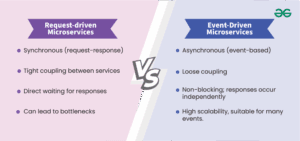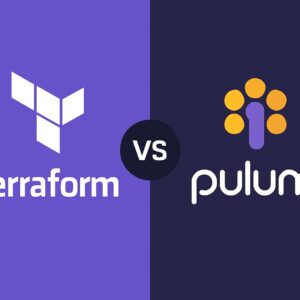Key Takeaways
AI integration with cloud infrastructure can significantly improve business scalability and flexibility.
Combining AI with cloud services helps optimize costs and resources, making operations more efficient.
AI-enhanced cloud systems provide better decision-making capabilities through advanced data analysis.
Small businesses can benefit from enhanced security and compliance by integrating AI with cloud infrastructure.
Despite initial costs and complexity, starting small with pilot projects and investing in training can lead to successful AI integration.
Integrating AI with Existing Cloud Infrastructure: Tips and Best Practices for Small Businesses
In today’s fast-paced digital world, integrating Artificial Intelligence (AI) with cloud infrastructure can give small businesses a competitive edge. This combination leverages the strengths of both technologies to enhance efficiency, decision-making, and security. Let’s dive into how you can harness these benefits.
The Competitive Edge of AI and Cloud Integration
AI and cloud computing together create a powerful synergy. AI can process vast amounts of data quickly, while cloud infrastructure provides the scalable and flexible environment needed for this processing. By integrating AI with your cloud systems, you can automate repetitive tasks, gain deeper insights from your data, and offer personalized experiences to your customers.
Most importantly, this integration can transform your small business into a more agile and responsive entity. For instance, AI can predict market trends and customer preferences, enabling you to make proactive decisions. Besides that, AI-driven analytics can uncover hidden patterns in your data, helping you optimize operations and reduce costs.
“AI in cloud computing is reshaping the business landscape, and for good reason. The technology provides several benefits that can augment human capabilities, making work more productive, innovative, secure, and cost-efficient.”

“Top 7 use cases of Cloud AI – A major …” from blog.datamatics.com and used with no modifications.
What is AI and How It Enhances Cloud Infrastructure
Definition of AI and Cloud Computing
AI refers to the simulation of human intelligence in machines programmed to think and learn like humans. This includes tasks such as speech recognition, decision-making, and language translation. On the other hand, cloud computing involves delivering computing services like storage, processing, and networking over the internet, allowing businesses to access and manage data and applications remotely.
When combined, AI and cloud computing create a robust infrastructure capable of handling complex tasks and massive datasets with ease. This integration allows small businesses to leverage advanced technologies without the need for significant upfront investments in hardware and software.
Key Differences and Synergy
While AI focuses on creating intelligent systems, cloud computing provides the necessary environment for these systems to operate efficiently. AI requires substantial computational power and storage, which cloud infrastructure can supply on demand. This synergy ensures that AI applications run smoothly and can scale as needed.
For example, a small business using cloud-based AI for customer service can handle a sudden surge in inquiries without any downtime. The cloud infrastructure can scale up to accommodate the increased load, while AI chatbots manage customer interactions seamlessly.
How AI Enhances Cloud Capabilities
AI enhances cloud capabilities in several ways. Firstly, AI-driven analytics can process and analyze vast amounts of data stored in the cloud, providing valuable insights that drive business decisions. Secondly, AI can automate routine tasks, freeing up human resources for more strategic activities. Lastly, AI improves security by detecting and mitigating threats in real-time, ensuring that your data remains safe and compliant with regulations.
Benefits of Integrating AI with Cloud Infrastructure for Small Businesses
Integrating AI with cloud infrastructure offers numerous benefits for small businesses. These advantages can help you stay competitive, optimize operations, and provide better services to your customers.
Scalability and Flexibility
One of the most significant benefits of AI and cloud integration is scalability. Cloud infrastructure allows you to scale your IT resources based on demand, while AI can adapt to changing business needs. This flexibility ensures that you can handle peak workloads without investing in additional hardware. For more insights on optimizing AI workloads, check out optimizing GPU utilization with GKE.
For instance, during a holiday sale, an e-commerce business can use AI to predict customer demand and automatically scale cloud resources to manage increased traffic. This approach ensures a smooth shopping experience for customers and maximizes sales opportunities.
Cost Efficiency and Resource Optimization
Integrating AI with cloud infrastructure can lead to significant cost savings. Cloud services eliminate the need for expensive on-premises hardware, while AI optimizes resource usage. By automating routine tasks and improving operational efficiency, you can reduce labor costs and focus on strategic initiatives.
Moreover, AI can analyze your cloud usage patterns and recommend ways to optimize resource allocation. This proactive approach helps you avoid over-provisioning and ensures that you only pay for the resources you need.
Improved Decision-Making
AI-enhanced cloud systems provide advanced data analysis capabilities that can improve decision-making. By analyzing large datasets, AI can uncover trends, patterns, and insights that might not be apparent through manual analysis. These insights enable you to make informed decisions and stay ahead of the competition.
For example, a retail business can use AI to analyze customer purchase data and identify emerging trends. This information can guide inventory management, marketing strategies, and product development, ensuring that you meet customer needs and drive growth.
High Initial Costs
One of the primary challenges small businesses face when integrating AI with cloud infrastructure is the high initial costs. Implementing AI solutions often requires substantial investment in software, hardware, and specialized talent. While cloud services can mitigate some of these expenses by providing scalable resources, the upfront costs for AI tools and expertise can still be significant. Partnering with a cloud infrastructure specialist like SlickFinch, who is proficient in AI technology can help you make all the right decisions from the get go.
However, it’s essential to view these costs as a long-term investment. The efficiencies and insights gained from AI integration can lead to significant savings and revenue growth over time. For example, automating customer service with AI chatbots can reduce labor costs and improve customer satisfaction, leading to higher retention rates.
Complexity and Skill Gaps
Another challenge is the complexity of integrating AI with existing cloud systems. AI technologies require specialized knowledge and skills, which may not be readily available within your current team. This skill gap can make the integration process more complicated and time-consuming.
Identify the specific AI skills needed for your project.
Invest in training and development for your existing staff.
Consider hiring external experts or consultants to assist with the integration.
Leverage cloud services that offer built-in AI capabilities to simplify the process.
By addressing these skill gaps proactively, you can ensure a smoother integration and maximize the benefits of AI and cloud technologies.
Data Privacy Concerns
Data privacy is a critical concern when integrating AI with cloud infrastructure. AI systems rely on vast amounts of data to function effectively, and this data often includes sensitive information. Ensuring that your data is protected and compliant with relevant regulations is essential to avoid legal issues and maintain customer trust.
To address data privacy concerns, implement robust security measures such as encryption, access controls, and regular security audits. Additionally, choose cloud providers that prioritize data privacy and comply with industry standards and regulations.
Integration with Legacy Systems
Integrating AI with existing cloud infrastructure can be particularly challenging if your business relies on legacy systems. These older systems may not be compatible with modern AI tools and cloud services, making the integration process more complex and time-consuming.
To overcome this challenge, consider the following steps:
Conduct a thorough assessment of your current systems to identify compatibility issues.
Develop a phased integration plan to gradually transition from legacy systems to modern cloud-based solutions.
Leverage middleware and APIs to bridge the gap between legacy systems and new AI technologies.
Engage with cloud providers that offer integration support and services to facilitate the process.
By taking a strategic approach to integration, you can ensure a seamless transition and fully leverage the benefits of AI and cloud technologies.
Tips for Successful AI Integration in Existing Cloud Systems
Successfully integrating AI with your existing cloud infrastructure requires careful planning and execution. Here are some practical tips to help you get started:
Start Small with Pilot Projects
Instead of diving into a full-scale AI integration, start with small pilot projects. This approach allows you to test the waters, identify potential issues, and refine your strategies before scaling up. Choose a specific area of your business where AI can have a significant impact and implement a pilot project to evaluate its effectiveness.
Invest in Employee Training
Investing in employee training is crucial for successful AI integration. Ensure that your team has the necessary skills and knowledge to work with AI technologies and cloud infrastructure. Provide ongoing training and development opportunities to keep your staff up-to-date with the latest advancements and best practices.
Consider partnering with educational institutions or online learning platforms to offer specialized AI and cloud computing courses for your employees. By building a knowledgeable and skilled team, you can maximize the benefits of AI integration and drive business growth.
Utilize AI Cloud Services from Established Providers
Leveraging AI cloud services from established providers can simplify the integration process and reduce the need for in-house expertise. Many cloud providers offer AI tools and services that are easy to integrate and manage, allowing you to focus on your core business activities.
“With the help of AI and cloud technologies, small-scale businesses can better navigate the complexities of the modern business landscape, achieve sustainable growth and success, and seize new business opportunities.”
By choosing reputable cloud providers, you can ensure that your AI integration is seamless, secure, and scalable.
Regularly Monitor and Optimize AI Performance
Once you’ve integrated AI with your cloud infrastructure, it’s essential to regularly monitor and optimize its performance. This proactive approach ensures that your AI systems continue to deliver value and operate efficiently.
Track key performance indicators (KPIs) to measure the impact of AI on your business.
Conduct regular performance reviews to identify areas for improvement.
Implement feedback loops to continuously refine and enhance your AI systems.
Stay updated with the latest AI advancements and incorporate new technologies as needed.
By maintaining a focus on optimization, you can ensure that your AI integration remains effective and continues to drive business growth. For example, optimizing GPU utilization can significantly enhance AI workloads.
Best Practices for Implementing AI in Small Business Cloud Systems
To maximize the benefits of AI integration, follow these best practices for implementing AI in your small business cloud systems:
Define Clear Objectives and KPIs
Before integrating AI with your cloud infrastructure, define clear objectives and key performance indicators (KPIs) to measure success. Having well-defined goals ensures that your AI initiatives align with your business strategy and deliver tangible results.
For example, if your objective is to improve customer service, set specific KPIs such as reduced response times, increased customer satisfaction scores, and higher retention rates. By tracking these metrics, you can evaluate the effectiveness of your AI integration and make data-driven decisions.
Build a Cross-Functional Team
Successful AI integration requires collaboration across different departments and functions. Build a cross-functional team that includes members from IT, operations, marketing, and other relevant areas. This diverse team can provide valuable insights, identify potential challenges, and ensure that your AI initiatives are well-rounded and effective.
Encourage open communication and collaboration within the team to foster innovation and drive successful AI integration. By leveraging the expertise and perspectives of different team members, you can develop comprehensive AI solutions that address various aspects of your business.
Ensure Data Quality and Integrity
Ensuring data quality and integrity is crucial when integrating AI with cloud infrastructure. Poor data quality can lead to inaccurate AI predictions and insights, ultimately impacting business decisions. To maintain data quality, implement robust data governance practices and regularly clean and validate your data.
Additionally, establish clear data management policies and procedures to ensure consistency and accuracy. Use data quality tools and techniques such as data profiling, data cleansing, and data enrichment to enhance the reliability of your data. By prioritizing data quality, you can maximize the effectiveness of your AI initiatives and drive better business outcomes. Check out our article on AI model lifecycle management to further streamline your processes.
Focus on Security and Compliance
Security and compliance are critical considerations when integrating AI with cloud infrastructure. AI systems often handle sensitive data, making it essential to implement strong security measures to protect against data breaches and cyber threats. Ensure that your cloud provider offers robust security features such as encryption, multi-factor authentication, and regular security audits.
In addition to security, compliance with relevant regulations and industry standards is vital. Familiarize yourself with data protection laws such as GDPR, CCPA, and HIPAA, and ensure that your AI and cloud systems adhere to these regulations. By prioritizing security and compliance, you can safeguard your data and maintain customer trust.
Leverage AI for Customer Insights and Marketing
AI can provide valuable customer insights and enhance your marketing efforts. By analyzing customer data, AI can identify patterns and trends that help you understand customer behavior, preferences, and needs. Use these insights to tailor your marketing strategies, create personalized experiences, and improve customer engagement.
For example, AI can segment your customer base and predict which products or services are most likely to appeal to different segments. This information allows you to create targeted marketing campaigns that resonate with your audience and drive higher conversion rates. Additionally, AI-powered chatbots can provide real-time customer support, enhancing the overall customer experience.
Conclusion and Next Steps
Integrating AI with existing cloud infrastructure offers numerous benefits for small businesses, including improved scalability, cost efficiency, decision-making, and security. While there are challenges such as high initial costs, complexity, and data privacy concerns, following best practices and strategic planning can lead to successful AI integration.
Summarizing Key Takeaways
To summarize, integrating AI with cloud infrastructure can significantly enhance your business operations and provide a competitive edge. Start with small pilot projects, invest in employee training, utilize AI cloud services from established providers, and regularly monitor and optimize AI performance. By focusing on data quality, security, and customer insights, you can maximize the benefits of AI integration and drive business growth.
Future Trends to Watch
As AI and cloud technologies continue to evolve, several future trends are worth watching. These include the integration of AI with IoT (Internet of Things), AI-driven forecasting and optimization, multimodal AI, and generative AI for content creation. Staying updated with these trends can help you leverage new opportunities and maintain a competitive edge.
For example, integrating AI with IoT can enable real-time monitoring and predictive maintenance, reducing downtime and improving operational efficiency. Similarly, generative AI can assist in creating high-quality content for marketing and customer engagement, saving time and resources.
Frequently Asked Questions (FAQs)
What Are the Cost Benefits of AI and Cloud Integration?
Reduced hardware and maintenance costs due to cloud services.
Optimized resource allocation, leading to lower operational expenses.
Automated tasks and improved efficiency, reducing labor costs.
Scalable resources that adapt to business needs, avoiding over-provisioning.
Integrating AI with cloud infrastructure can lead to significant cost savings by eliminating the need for expensive on-premises hardware and optimizing resource usage. By automating routine tasks and improving operational efficiency, you can reduce labor costs and focus on strategic initiatives. Additionally, AI can analyze your cloud usage patterns and recommend ways to optimize resource allocation, ensuring that you only pay for the resources you need.
How Can a Small Business Ensure Data Privacy?
Ensuring data privacy is essential when integrating AI with cloud infrastructure. Implement robust security measures such as encryption, access controls, and regular security audits to protect your data. Additionally, choose cloud providers that prioritize data privacy and comply with industry standards and regulations. Familiarize yourself with data protection laws such as GDPR, CCPA, and HIPAA, and ensure that your AI and cloud systems adhere to these regulations. By prioritizing security and compliance, you can safeguard your data and maintain customer trust.
Which Cloud Providers Offer the Best AI Services?
Several cloud providers offer excellent AI services, including:
Amazon Web Services (AWS): Offers a wide range of AI services such as Amazon SageMaker, AWS Deep Learning AMIs, and Amazon Rekognition.
Microsoft Azure: Provides AI services like Azure Machine Learning, Cognitive Services, and Azure Bot Service.
Google Cloud Platform (GCP): Features AI services such as AI Platform, AutoML, and Cloud Vision API.
IBM Cloud: Offers AI services like IBM Watson, Watson Studio, and Watson Assistant.
Choosing the right cloud provider depends on your specific needs and preferences. Evaluate the features, pricing, and support offered by each provider to determine the best fit for your business.
What Skills Are Needed to Implement AI in Cloud?
Implementing AI in cloud infrastructure requires a combination of technical and business skills, including:
Data Science: Understanding of data analysis, machine learning algorithms, and statistical methods.
Cloud Computing: Knowledge of cloud platforms, services, and architecture.
Programming: Proficiency in programming languages such as Python, R, and SQL.
AI and Machine Learning: Familiarity with AI frameworks, tools, and libraries.
Project Management: Ability to plan, execute, and manage AI integration projects.
Investing in training and development for your team can help bridge skill gaps and ensure successful AI integration. Consider partnering with educational institutions or online learning platforms to offer specialized AI and cloud computing courses for your employees.
Integrating AI solutions with existing cloud infrastructure and applications can be intricate. Compatibility issues may arise, and ensuring seamless integration poses a significant challenge.
By addressing these challenges proactively and following best practices, you can successfully integrate AI with your cloud infrastructure and drive business growth.




